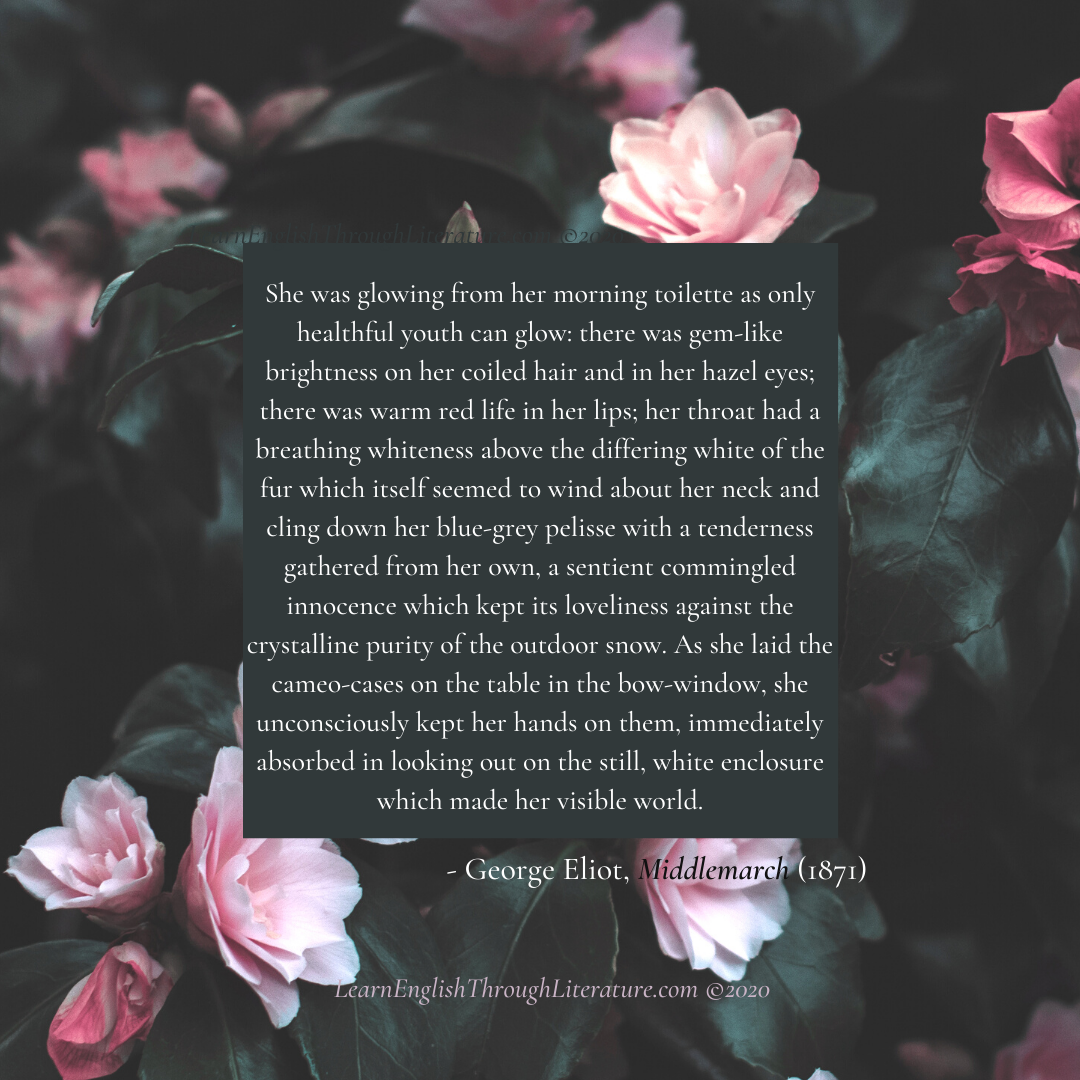Having read through George Eliot’s Middlemarch passage in the last post, I will share some insights into how she (George Eliot was Mary Ann Evans’ pseudonym) used ADJECTIVES to achieve her purpose.
A little bit of background: This passage describes Dorothea Brooke, a young woman who is newly married to a middle-aged scholar. In this passage, she has just arrived back home after the honeymoon.
🌼 What are your IMPRESSIONS of Dorothea? Did the writer’s choice of adjectives INFLUENCE what you think of Dorothea?
🌼 If you felt that Dorothea must be a beautiful young woman, you are right. But beyond that, George Eliot used the adjective ‘white’ throughout this passage. What does she achieve with this? An emphasis on Dorothea’s purity and innocence – concepts that are symbolised by the colour white.
And these adjectives not only describe Dorothea’s moral character, but also HINT AT some future tension, some darker ‘background’ in the story against which Dorothea’s ‘whiteness’ or innocence will be contrasted.
📝 Of course this is a literary text that retells a story, and you may want to write academic essays or professional correspondence and think to yourself, ‘Would I ever use an adjective such as ‘white’ EFFECTIVELY in my writing?’
You have a point: not all adjectives are suitable for all kinds of writing.
📝 But when you are preparing a persuasive piece of writing, ask yourself, 1) ‘What is the STRONGEST point(s) I want to impress the reader with?’
📝 Then 2) FIND AN ADJECTIVE (OR TWO) that captures this strong point, and introduce that adjective in the right place (if you are unsure of where to place it, try placing it in the first and last sentences).
As always, I would love to hear if these tips help you in your own writing. Keep reading and observing with an open mind, and your English writing skills will continue to improve!




